
Jürgen Schaller drives through Franconia in a mobile branch of the Sparkasse bank
Story
Many villages in the north-east of Bavaria don’t have any Sparkasse banks or cash machines. With his Atego, Jürgen Schaller makes sure that customers in the area still get their cash and bank statements.
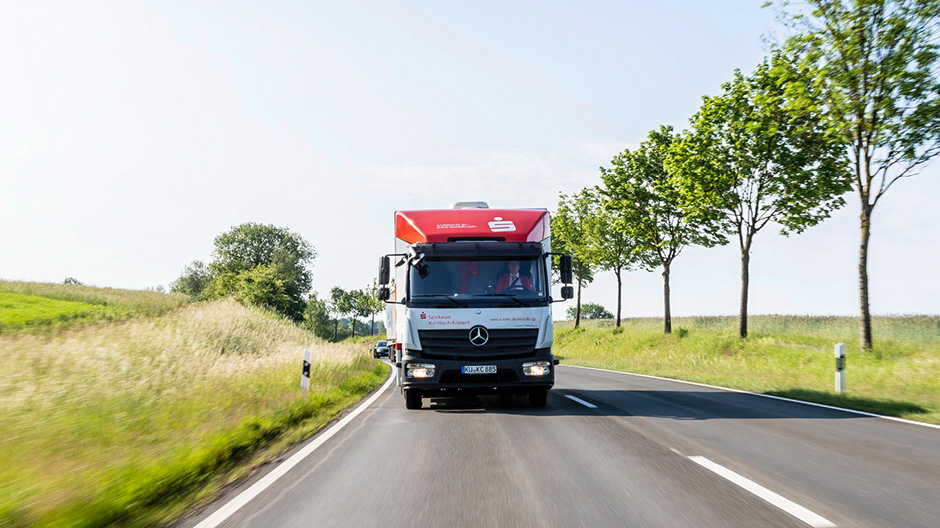
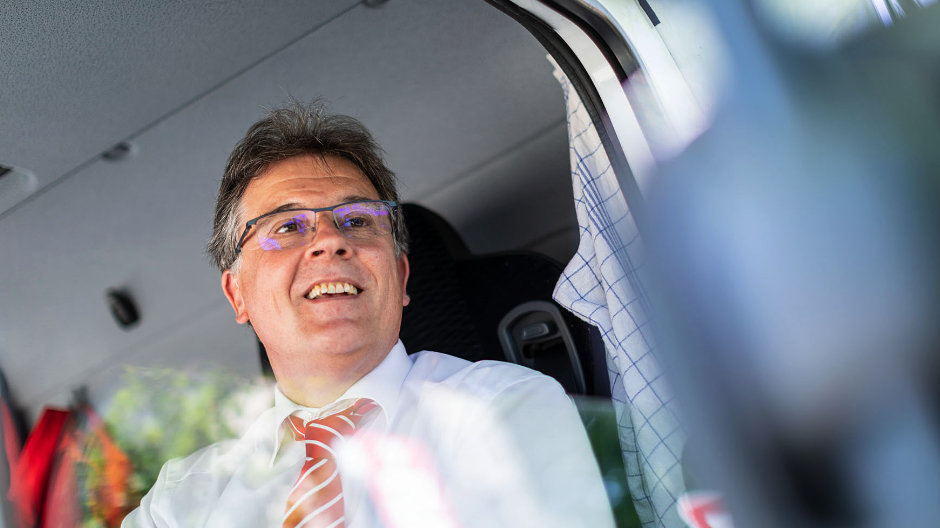
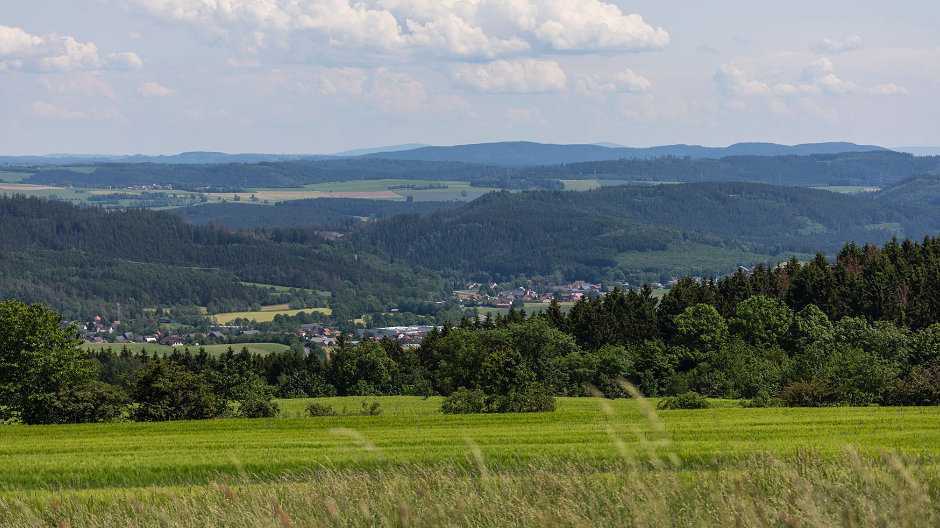
Forest as far as the eye can see. Off and on, there are meadows and fields in-between. The Atego’s large windscreen lets the lush green of the spruces on either side of the road come into view. Right after exiting Wilhelmsthal, Jürgen Schaller steps on the accelerator. The automatic transmission changes down a gear. This is the start of the two-kilometre-long ascent through the Franconian Forest. Jürgen’s destination: the small village of Tschirn with just over 500 inhabitants. The population in this area in the outermost north-east of Bavaria has declined by ten per cent since 1990. Tschirn’s population has actually been affected even more.
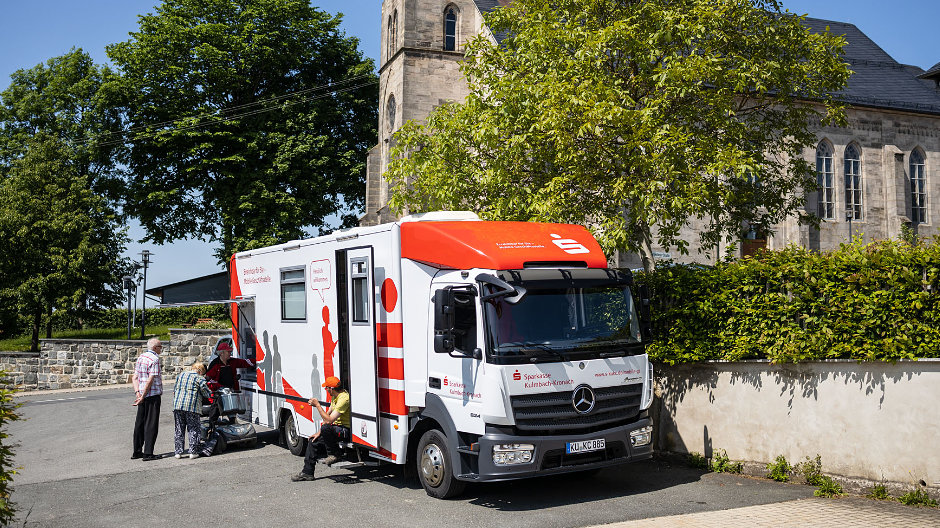
Jürgen’s Atego is also always a rendezvous point in Tschirn.
Jürgen steers the white Atego 924 along the meandering road. A quick glance at the time – right on schedule. “Up in the village, there’ll already be a queue waiting for me,” he says with a smile. At the same time every Tuesday, Jürgen rolls into Tschirn in his mobile branch of the Sparkasse Kulmbach-Kronach bank and onto the little square in front of the church. The village is one of a total of eleven stops that the bank clerk makes in the districts of Kulmbach and Kronach. Around 250 customers get to the mobile bank this way during the week.
Mission: be there in person.
There’s no branch of the Sparkasse bank in these eleven locations. You also won’t find a cash machine here. “As a savings bank, we have to fulfil a public service,” says Jürgen. In administrative language, that means providing money and credit services. For the people of Tschirn, this means cash and bank statements. “And that without having to drive anywhere for hours on end,” says the 58-year-old. The drive from Wilhelmsthal to Tschirn alone takes a good quarter of an hour by car.
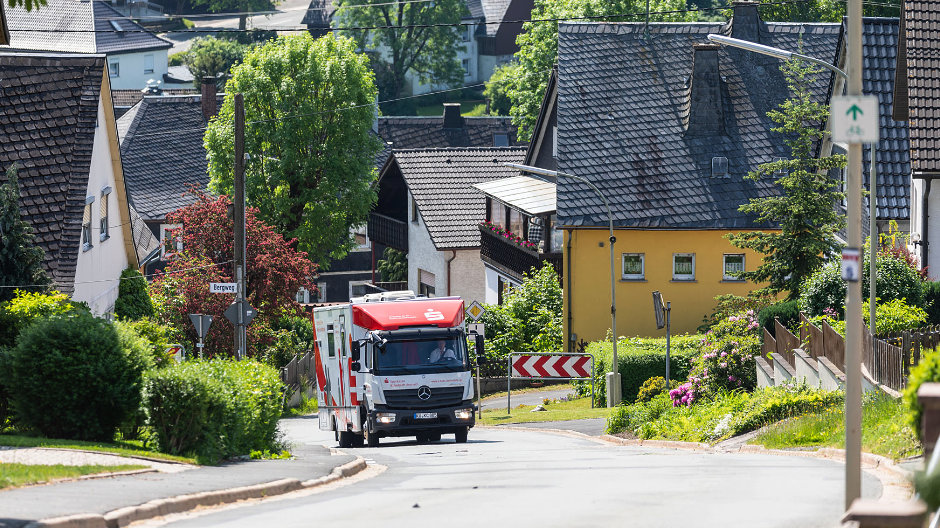
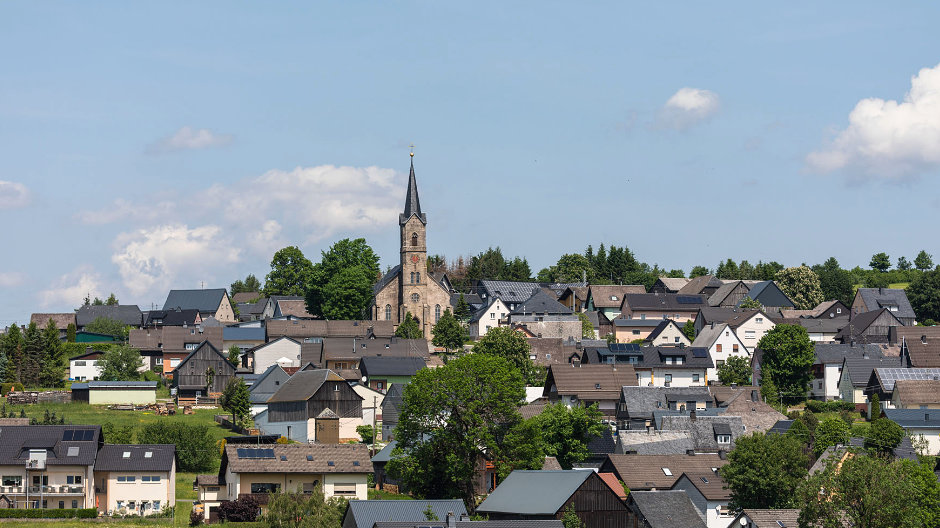
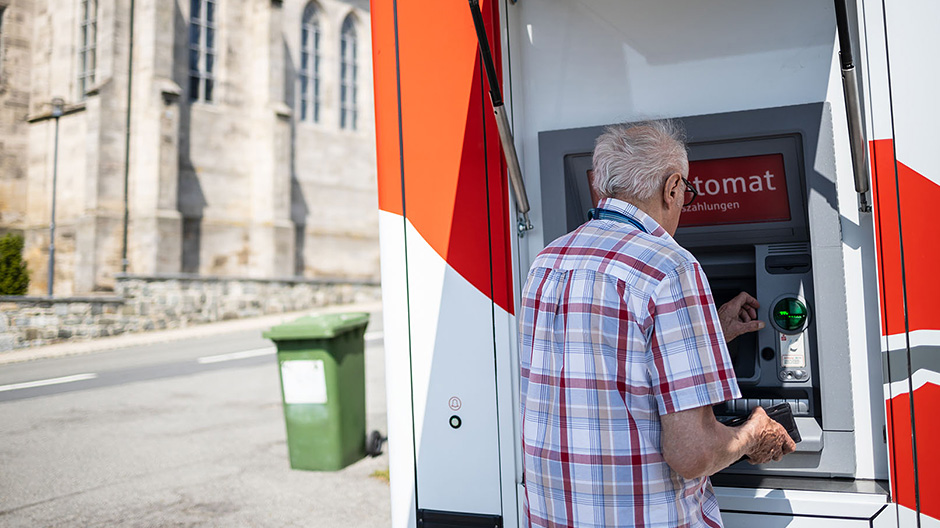
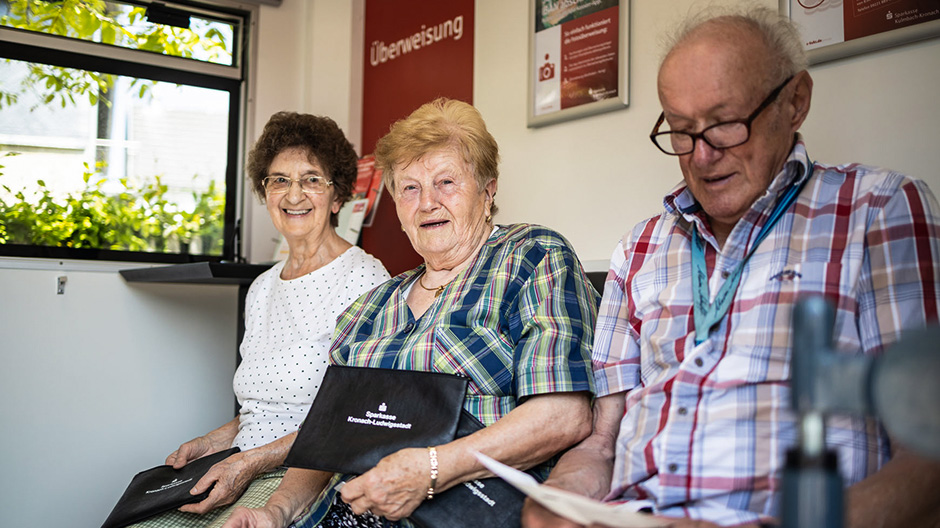
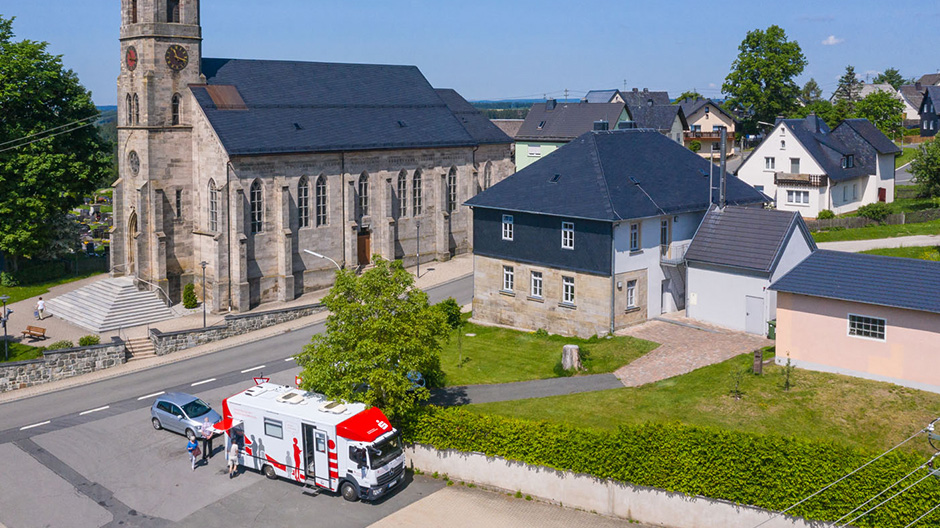
Jürgen has parked the Atego, lowers the hydraulic supports and opens the hatch to the cash machine. The cash machine, which can only be accessed from outside, is one of the most important features: it’s possible to make deposits and withdrawals here. Then the village comes to life. A minibus is approaching – the municipality’s shuttle service. To come to terms with the sparse infrastructure here, they had to come up with something.
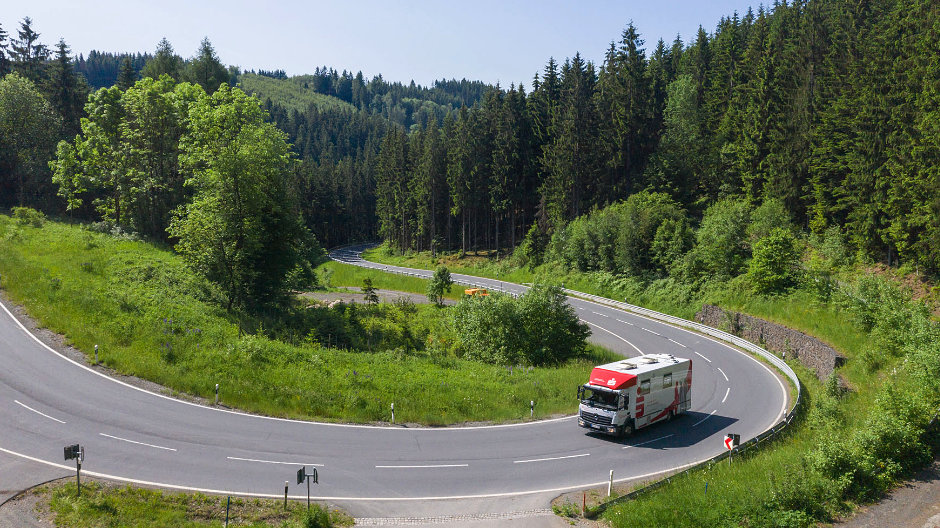
Jürgen has to overcome inclines of up to ten per cent with the Atego.
A sudden marketplace.
Six senior citizens get off the bus and greet Jürgen. A baker from the neighbouring village parks a few metres away. He starts selling bread from the boot of his car. Suddenly Tschirn has a small market.
“And, did you survive the Schützenfest alright?” a resolute woman asks everyone standing around. Jürgen’s weekly visit is also always a good reason for a small village get-together. “Without the mobile bank, I’d hardly be able to get my hands on any cash,” says the elderly woman. Nods of agreement all around in the small waiting room, containing a bank statement printer and a table for filling out bank transaction slips as well as three places to sit. Jürgen and another woman from the village have sat down at a consultation table behind a glass door. From here, Jürgen has a secure connection to view account details and savings. He cannot pay out any cash here. That’s what the cash machine outside is for. Jürgen has no access to the inside of the machine. Only security guards are allowed to open up and fill it. Security is taken very seriously in general. The Atego is constantly monitored by GPS. The alarm systems and camera surveillance are also second to none in a stationary branch.
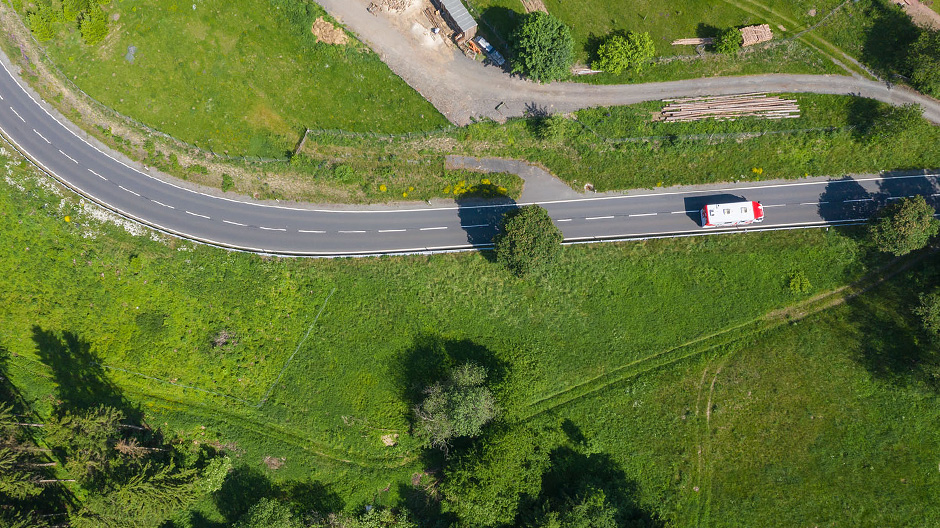
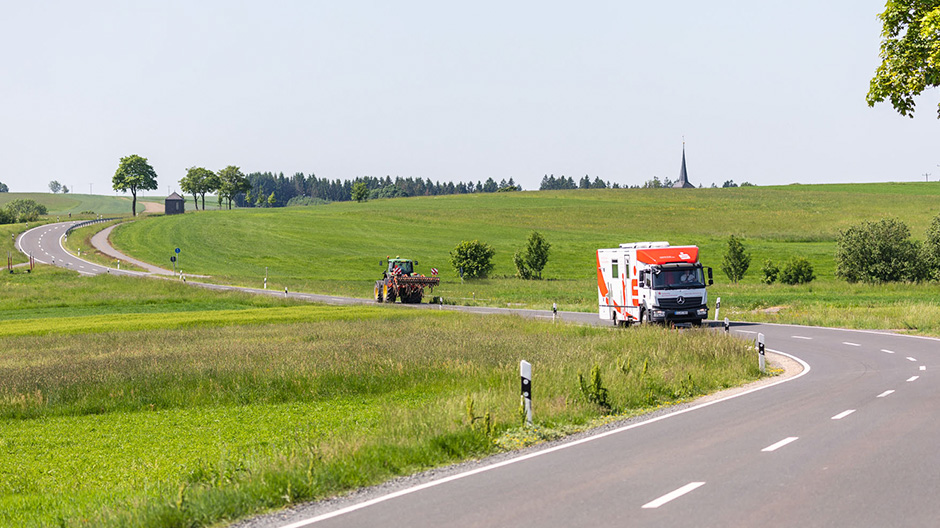
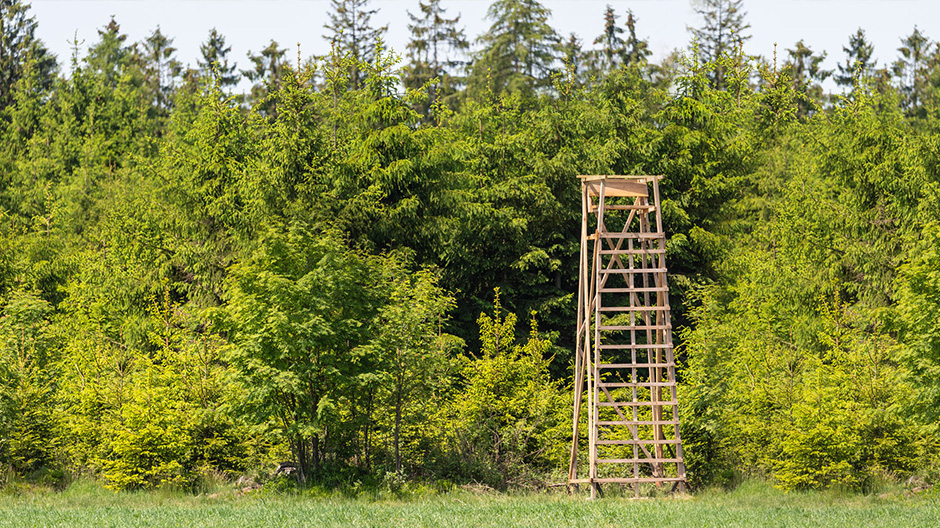

Banker and trucker.
All the equipment has a considerable amount of weight to it. “Initially, the plan was to stay under 7.5 tonnes, but it was clear after a while that that wasn’t going to happen.” Jürgen has been part of the project since its planning phase back in 2014. “After 25 years in my job, it was a great opportunity for me to do something else.”
However, one thing just couldn’t be avoided: “As soon as we knew that we were going to be over 7.5 tonnes, my holiday cover and I swotted for the class C driving licence test.” In his mid fifties. He passed his test in March 2015, and he was on the road in April. “I really like driving a car, but I had to properly learn the technical aspects of driving a truck in particular.”
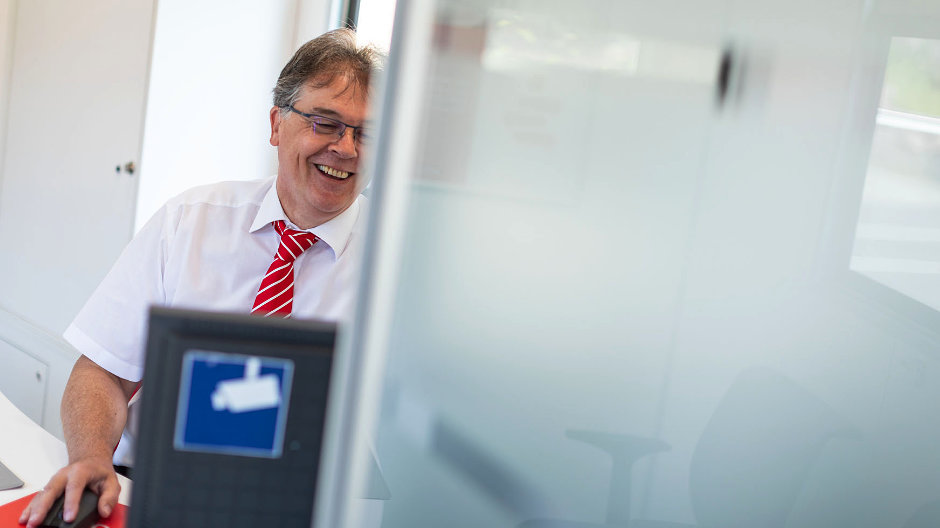
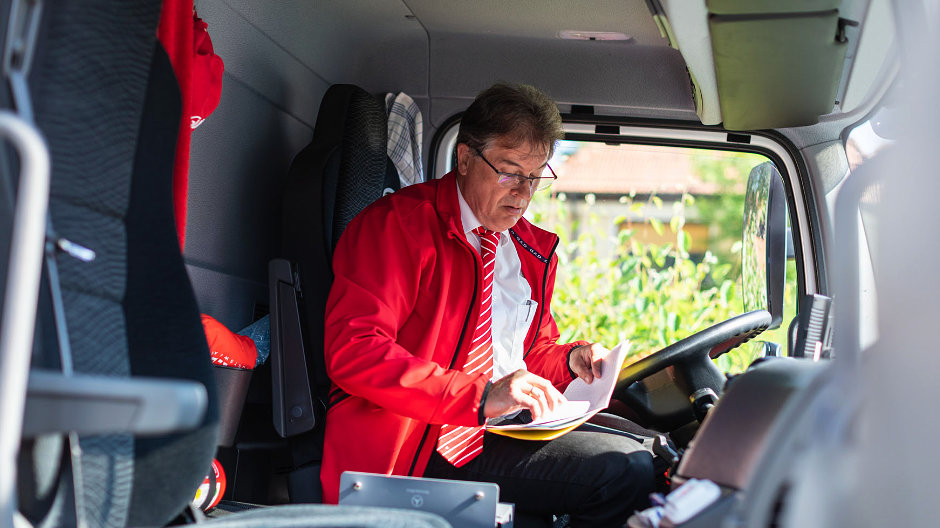
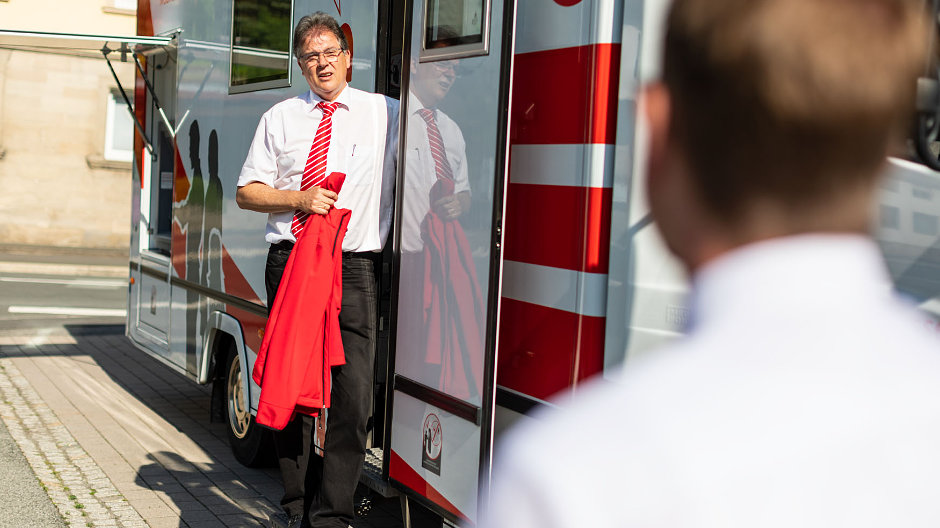
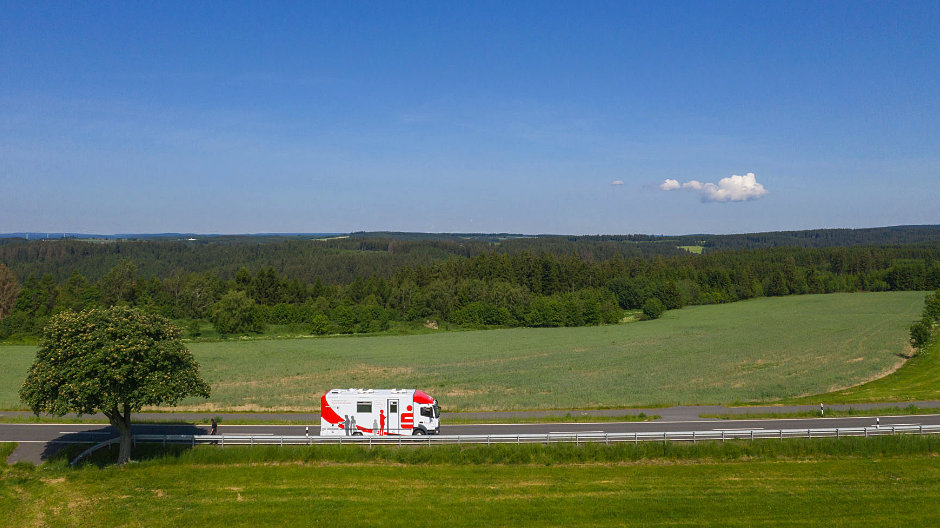
On the road the whole year round.
Thanks to its dimensions, the Atego is still manoeuvrable enough for the region’s narrow, winding roads. “When the combine harvesters come towards you during harvest time, it can get pretty tight,” says Jürgen, who quickly got used to driving the truck.
“I just love being on the road and enjoy the quiet between appointments,” he says. The OM 936 engine delivers 175 kW (238 hp), which ensures enough power and endurance to actually be able to enjoy the route. In summer as well as in winter. In icy and snowy conditions, rotation chains on the rear axle that can be activated from within the cabin provide the necessary grip on the inclines. He does around 22.000 kilometres per year. At night, the vehicle is parked in an alarmed garage. Jürgen can also fill up the tank and give it a wash here, which he does on Fridays, as well as appointments for servicing and changing the tyres. Now and again, the truck and Jürgen are needed at the weekend: at the Kulmbacher Beer Week, for example, where an additional cash machine is necessary near the fairground.
Photos: Alex Kraus




Comment
Please log in to post a comment.
5 comments
Lkw-Fahrer als Bankberater.. 😄
Und wenn der Atego nach 10 Jahren mit 220.000km ausgemustert wird, gibt's ein prima Wohnmobil. Der (vollen) Geldautomat würde nicht einmal stören...
Gruß
Klaus
Lkw-Fahrer als Bankberater.. 😄
Und wenn der Atego nach 10 Jahren mit 220.000km ausgemustert wird, gibt's ein prima Wohnmobil. Der (vollen) Geldautomat würde nicht einmal stören...
Gruß
Klaus